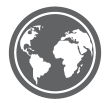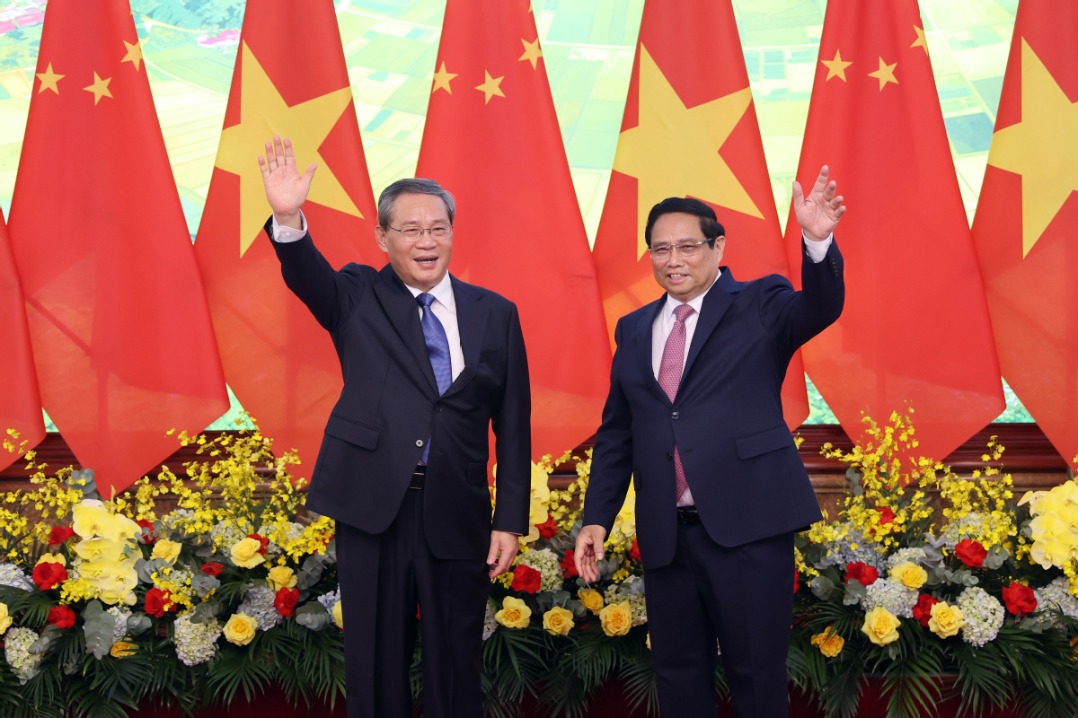What's news

COMPANIES AND MARKETS
China Co-op Group, GLP plan alliance
China Co-op Group has signed a contract with global logistics solutions provider GLP in starting a fund management company and a logistics management company to render better agricultural services. The cooperation aimed to combine the more than 4,000 warehouses and logistics parks owned by China's supply and marketing cooperatives and GLP's technology and expertise to spur high-quality development of the industry, said Hou Shunli, chairman of China Co-op Group. Ming Z. Mei, co-founder and CEO of GLP, expressed hopes of establishing a long-term partnership with China Co-op Group.
VW to invest $4.4b in nation next year
Volkswagen Group China and its partners plan to invest more than 4 billion euros ($4.4 billion) in China in 2020, with 40 percent of the investment in the electric vehicle field, including manufacturing, infrastructure construction and R&D, the company said. In the next few years, the automaker is expected to invest more in electric vehicles than petrol vehicles. It aims to deliver 30 types of new energy vehicles in the Chinese market before 2025, with a sales target of 1.5 million vehicles. Stephan Wollenstein, CEO of Volkswagen Group China, said China's success in electric mobility would be the core driving force to realize automakers' sustainable development goals.
HP rejects 'hostile' takeover bid by Xerox
US technology company HP Inc has again rejected Xerox Corp's attempt to seek a forced combination of the two companies, saying its proposal "significantly undervalues HP." In a letter to Xerox, HP Chief Executive Enrique Lores and board chair Chip Bergh said on Sunday the company's board of directors has reviewed Xerox's letter dated Nov 21 that offered to buy HP for about $33.5 billion, and turned down the latter's bid. HP questioned the US office technology company's ability to raise cash for the purchase, saying Xerox's propose is "highly conditional and uncertain". HP said Xerox failed to give a clear answer to questions it raised in private discussions with Xerox executives in August and September.
Uber loses London licence on safety issues
Transport for London (TfL), the regulator of taxi and private hire services in the UK capital, said on Monday that it will not grant Uber a new private hire operator's licence due to safety reason. Uber's existing licence in London expires by the end of Monday. According to legislation, Uber now has 21 days to appeal, during which it can continue to operate until any appeal processes have been exhausted or withdrawn. In a statement, TfL identified a pattern of failures by Uber including several breaches that placed passengers and their safety at risk.
Westpac Bank CEO Hartzer steps down
Westpac Bank Chief Executive Officer Brian Hartzer announced his resignation on Tuesday following an unprecedented week of scrutiny for Australia's second largest financial institution. The embattled business leader has been facing heavy pressure to stand down in recent days after the country's financial watchdog filed civil legal proceedings in federal court last Wednesday, accusing the bank of breaching anti-money laundering and counter-terrorism finance (AML/CTF) laws 23 million times. Australian Transaction Reports and Analysis Center (AUSTRAC) Chief Executive Officer Nicole Rose said the decision to lodge the suit against Westpac Bank was made after a detailed investigation revealed "serious and systemic non-compliance" breaches.
Daimler unit gets 15% of truck maker Kamaz
Daimler Truck AG, a subsidiary of German automaker Daimler AG, has acquired a 15-percent stake in Russian truck maker Kamaz. The transaction took place on Nov 15, according to a Kamaz statement on Monday, without elaborating. Kamaz is Russia's top producer of heavy cargo trucks. It also manufactures a broad spectrum of other commercial vehicles, including diesel, gasoline and electric-powered buses.
AROUND THE WORLD
Sri Lanka's tea exports increase in October
Sri Lanka's tea exports volume increased 10.7 percent in October but production dropped nearly 30 percent compared to last year, local media reports quoting the Tea Exporters Association in Sri Lanka said. A total of 25.8 million kilograms of Ceylon tea were exported in October, an increase of 2.5 million kilograms compared to October last year. Growth in Ceylon tea exports was seen in all major categories including tea bags, packeted tea and bulk tea. Cumulative exports of Ceylon tea from January to October were 246.9 million kilograms, compared to 235.6 million kilograms for the same period last year.
Trade fair to be held in Vietnam next month
The Vietnam International Trade Fair-Vietnam Expo 2019 will be held on Dec 4 to 7 in Vietnam's southern Ho Chi Minh City, gathering some 800 firms from 20 countries and regions, its organizers said. The event will take place together with the International Exhibition on Hardware and Hand Tools 2019, aiming to create a platform for enterprises to exchange experience and seek for cooperation and investment opportunities as well as attract foreign investment and promote the Vietnamese market through multinational trade promotion. The four-day event, expected to draw 20,000 visitors, will feature some 900 booths from countries including the United Kingdom, China, Indonesia, Russia, the United States and Vietnam, showcasing various products of such categories as machinery and electronics, hardware and hand tools, garden and landscape.
Manufacturing output rises in Singapore
Singapore's Economic Development Board announced on Tuesday that the country's manufacturing output grew 4 percent year-on-year in October, compared to a revised 0.7-percent increase this September. Excluding biomedical manufacturing, the output grew 0.2 percent year-on-year in October, compared to a revised 3.8-percent decrease in the previous month. Meanwhile, on a seasonally adjusted month-on-month basis, Singapore's manufacturing output increased 3.4 percent in October. Excluding biomedical manufacturing, the output grew 6.5 percent.
Base interest rate stays unchanged in Israel
Israel's central bank announced on Monday that it will keep the base interest rate for the next six and a half weeks at the rate of 0.25 percent. The bank assesses that due to Israel's low inflation, the monetary policies of major central banks, the slowing of the global economy, and the continued appreciation of the new shekel, it will be necessary to leave the interest rate at its current level for a long period or even reduce it. This policy aims to support a process at the end of which inflation will stabilize around the midpoint of the governmental annual target range (1 to 3 percent), and so that the economy will continue to grow strongly.


Today's Top News
- Volt Typhoon III report exposes US cyber forces operations
- Macao SAR elects new chief executive-designate
- China, Japan can cooperate to address aging
- China hailed as transformative force
- A necessary and pragmatic reform
- Shift in policy to strengthen nation's growth






























